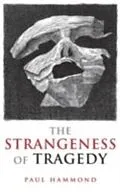This book explores the theatrical and linguistic means by which the tragic protagonist is estranged from other characters and comes to occupy a singular world in which the autonomy of the individual seems uncertain, discussing plays from classical, renaissance, and neo-classical literature by Aeschylus, Sophocles, Seneca, Shakespeare, and Racine.
Zusammenfassung
This book reads tragedy as a genre in which the protagonist is estranged from the world around him, and, displaced in time, space, and language, comes to inhabit a milieu which is no longer shared by other characters. This alienation from others also entails a decomposition of the integrity of the individual, which is often seen in tragedy's uncertainty about the protagonists' autonomy: do they act, or do the gods act through them? Where are the boundaries of theself, and the boundaries of the human? After an introductory essay exploring the theatrical and linguistic means by which the protagonist is made to inhabit a strange and singular world, the book devotes essays to plays from classical, renaissance, and neo-classical literature by Aeschylus,Sophocles, Seneca, Shakespeare, and Racine. Close attention is paid to the linguistic strangeness of the texts which is often smoothed over by editors and translators, as it is through the weirdness of tragic language that the deep estrangement of the characters is shown. Accordingly, the Greek, Latin, and French texts are quoted in the originals, with translations added, and attention is paid to textual cruces which illustrate the linguistic and conceptual difficulties of theseplays.
Zusammenfassung
This book reads tragedy as a genre in which the protagonist is estranged from the world around him, and, displaced in time, space, and language, comes to inhabit a milieu which is no longer shared by other characters. This alienation from others also entails a decomposition of the integrity of the individual, which is often seen in tragedy's uncertainty about the protagonists' autonomy: do they act, or do the gods act through them? Where are the boundaries of theself, and the boundaries of the human? After an introductory essay exploring the theatrical and linguistic means by which the protagonist is made to inhabit a strange and singular world, the book devotes essays to plays from classical, renaissance, and neo-classical literature by Aeschylus,Sophocles, Seneca, Shakespeare, and Racine. Close attention is paid to the linguistic strangeness of the texts which is often smoothed over by editors and translators, as it is through the weirdness of tragic language that the deep estrangement of the characters is shown. Accordingly, the Greek, Latin, and French texts are quoted in the originals, with translations added, and attention is paid to textual cruces which illustrate the linguistic and conceptual difficulties of theseplays.
Titel
Strangeness of Tragedy
Autor
EAN
9780191571480
ISBN
978-0-19-157148-0
Format
E-Book (pdf)
Hersteller
Herausgeber
Genre
Veröffentlichung
17.09.2009
Digitaler Kopierschutz
Adobe-DRM
Anzahl Seiten
216
Jahr
2009
Untertitel
Englisch
Unerwartete Verzögerung
Ups, ein Fehler ist aufgetreten. Bitte versuchen Sie es später noch einmal.
